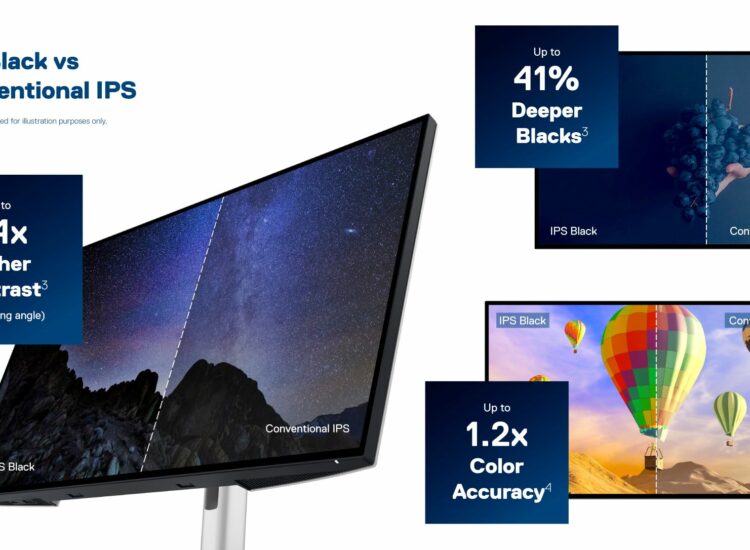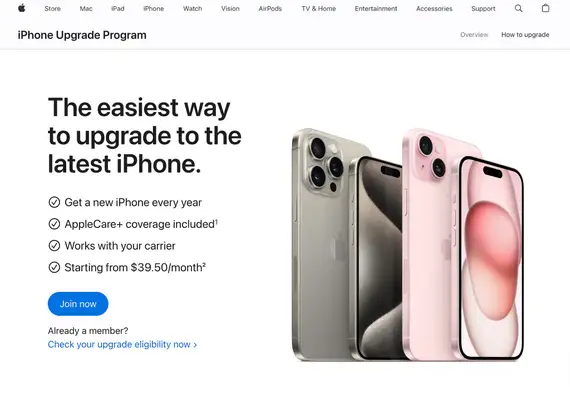Selecting the right software can transform your small business, streamlining operations, freeing up valuable time, and ultimately boosting your bottom line. The rise of cloud-based software has revolutionized the way small businesses operate, offering accessibility, scalability, and cost-effectiveness. However, the sheer volume of options available can be overwhelming, making it difficult to identify the best small business computer programs that truly deliver value.
Toc
- 1. Essential Software for Small Business Success in 2024
- 2. Related articles 01:
- 3. Choosing the Best Small Business Computer Programs for Your Business in 2024
- 4. Related articles 02:
- 5. Maximizing the Effectiveness of Your Software Investments
- 6. Conclusion: Streamlining Your Small Business Operations in 2024
While cloud-based solutions offer numerous benefits, it’s important to consider potential drawbacks. One concern is the reliance on internet connectivity. If your internet connection is unreliable or experiences outages, you may lose access to your data and critical business operations. Additionally, data security can be a concern, as your data is stored on third-party servers. It’s essential to choose reputable cloud providers with strong security measures in place.
Essential Software for Small Business Success in 2024

As technology continues to evolve and shape the business landscape, it’s crucial for small businesses to stay updated with the latest software solutions that can help them thrive in today’s competitive market. Here are some essential software programs that every small business should have in their arsenal by 2024:
Accounting & Bookkeeping: Keeping Your Finances in Order
Reliable accounting software is a must-have for any small business in 2024. Tools like QuickBooks, Xero, and FreshBooks offer features like invoice creation, expense tracking, financial reporting, and payroll management. These solutions can help you stay on top of your finances, make informed decisions, and ensure compliance with tax regulations.
When choosing accounting software, consider factors like ease of use, integration capabilities, and pricing. QuickBooks, for example, is an all-inclusive accounting platform that caters to small businesses and contractors, providing a comprehensive suite of features. Xero, on the other hand, is a cloud-based accounting software that boasts robust reporting capabilities and seamless integration with various business tools. FreshBooks, a solution tailored for service-based small businesses, offers intuitive invoicing, time tracking, and project management features.
A recent development in the accounting software landscape is the rise of AI-powered solutions. These tools utilize machine learning algorithms to automate tasks like expense categorization, invoice processing, and even tax filing. For instance, [Name of AI-powered accounting software] utilizes natural language processing to extract data from receipts and invoices, saving businesses significant time and effort. While still in its early stages, AI-powered accounting software holds the potential to revolutionize the way small businesses manage their finances.
Website Building & E-commerce: Establishing a Strong Online Presence
In today’s digital landscape, having a professional website is crucial for small businesses in 2024. Website builders like Squarespace, Wix, and WordPress make it easy to create a visually appealing, mobile-responsive website without extensive coding knowledge. These platforms offer a range of customizable templates, e-commerce functionalities, and marketing integrations to help you establish a strong online presence and drive sales.
Squarespace, for example, is an all-in-one website building solution that allows you to create a stunning, professional-looking website with ease. WordPress, on the other hand, is a highly versatile platform that powers over a third of all websites on the internet. It offers thousands of free and premium themes, as well as a vast ecosystem of plugins to enhance your website’s functionality. Wix, with its intuitive drag-and-drop interface, is another popular choice for small businesses looking to build a visually appealing online presence.
Mobile-First Design: A Must-Have for Small Businesses
In 2024, it’s crucial for small businesses to prioritize mobile-first website design. Statistics show that over 70% of online traffic comes from mobile devices. Website builders like Squarespace and Wix have recognized this trend and offer templates optimized for mobile viewing. This means that your website will load quickly and display correctly on any device, ensuring a seamless user experience for your customers.
Marketing & Sales Automation: Reaching More Customers, Boosting Sales
Marketing automation tools like Mailchimp, HubSpot, and Constant Contact can be game-changers for small businesses in 2024. These platforms streamline tasks like email marketing, social media management, and lead generation, allowing you to reach more customers, nurture leads, and boost sales. With features like automated email workflows, custom segmentation, and real-time analytics, these tools can help you make the most of your marketing efforts.
HubSpot, for instance, offers a comprehensive suite of marketing, sales, and customer service tools, all within a centralized platform. It can help you manage your CRM, automate lead generation, and gain valuable insights into your marketing campaigns. Mailchimp, on the other hand, is a popular email marketing solution that integrates seamlessly with e-commerce platforms like Shopify. Constant Contact, known for its user-friendly interface and customizable email templates, is another reliable choice for small businesses looking to streamline their marketing efforts.
1. https://shoptonytoy.vn/archive/1487/
2. https://shoptonytoy.vn/archive/1488/
3. https://shoptonytoy.vn/archive/1491/
While marketing automation can be highly effective, it’s crucial to avoid over-automation. Sending too many automated emails or using overly generic messaging can lead to customer fatigue and even damage your brand reputation. It’s important to strike a balance between automation and personalized communication to ensure your marketing efforts resonate with your target audience.
Project Management & Collaboration: Staying Organized, Boosting Productivity
Effective project management is essential for small businesses in 2024 to stay organized, meet deadlines, and foster team collaboration. Tools like Trello, Asana, and Basecamp provide a centralized platform for managing tasks, tracking progress, and facilitating communication. These solutions can help you delegate responsibilities, ensure accountability, and optimize your team’s efficiency.
Trello, with its intuitive Kanban-style boards, makes it easy to visualize and manage your team’s workflows. Asana offers a comprehensive suite of project management features, including task assignments, dependencies, and customizable dashboards. Basecamp, known for its robust communication and collaboration tools, helps small businesses keep all their projects and team discussions in one organized space.
Communication & Team Messaging: Fostering Seamless Collaboration
In an increasingly remote and distributed work landscape, effective communication and collaboration are crucial for small businesses in 2024. Tools like Slack, Microsoft Teams, and Zoom offer features like real-time messaging, video conferencing, and file sharing, enabling seamless team coordination and collaboration, even when team members are physically apart.
Slack, for instance, has become a widely adopted team communication platform, allowing small businesses to create dedicated channels for different projects or departments. Microsoft Teams, integrated with the Microsoft Office suite, provides a unified hub for chat, video calls, and document collaboration. Zoom, a popular video conferencing solution, has become an essential tool for small businesses to host virtual meetings and webinars.
Choosing the Best Small Business Computer Programs for Your Business in 2024

When choosing the best small business computer programs for your business in 2024, it’s important to consider several factors.
Assess your business needs
Understanding your specific business needs is the first step in selecting the right computer programs for your small business. Begin by identifying the key functions that are critical to your operations, such as accounting, customer relationship management (CRM), communication, and project management. Assess how software solutions can address these functions and consider any unique industry requirements you may have. For instance, a small retail business may prioritize inventory management and point-of-sale systems, while a consultancy firm might focus more on CRM and collaboration tools.
Next, evaluate the scalability of the software you are considering. As your business grows, your software needs will likely evolve, so choose solutions that are flexible and can adapt to changing demands. It’s also essential to consider integration capabilities with your existing tools to ensure seamless workflows. Additionally, take into account the ease of use of the software, as a more intuitive interface can minimize training time and improve overall team adoption.
Lastly, factor in cost and support. Analyze the total cost of ownership, including subscription fees, potential upgrades, and any necessary training. Reliable customer support and access to online resources are also crucial components that can help ensure your team can effectively leverage the software to its fullest potential. Making informed decisions based on these considerations will help your small business remain agile and competitive in 2024.
Evaluate Security and Compliance
In 2024, the digital landscape continues to evolve with new security threats and regulatory requirements, making it critical for small businesses to prioritize cybersecurity when selecting computer programs. Start by assessing the security features of potential software solutions, such as data encryption, user authentication, and regular security updates. This evaluation will help protect sensitive business data and maintain customer trust.
Furthermore, compliance with industry-specific regulations is essential to avoid legal complications. For instance, businesses handling personal data need to ensure compliance with data protection laws like GDPR or CCPA. It’s important to choose software that supports these compliance requirements and offers features such as audit trails and data access controls.
Additionally, consider the reputation and reliability of the software provider. Conduct thorough research on their history of security breaches and their response to such incidents. Opt for solutions with strong security track records to safeguard your business’s information and assets.
Finally, conduct regular security training for your team to ensure that everyone is aware of the latest threats and best practices for data protection. By focusing on security and compliance, your small business can mitigate risks and operate confidently in the digital world.
1. https://shoptonytoy.vn/archive/1491/
2. https://shoptonytoy.vn/archive/1488/
3. https://shoptonytoy.vn/archive/1490/
Consider Usability and Customer Support
When selecting the right computer programs for your small business in 2024, usability and customer support are key considerations that can impact the efficiency and satisfaction of your team. Prioritizing software with an intuitive interface can significantly reduce the learning curve and increase productivity. Tools that offer customizable features and layouts allow users to tailor the software to better align with their specific workflows, thereby enhancing usability.
Customer support is another critical factor that cannot be overlooked. Ensure that the software provider offers comprehensive support options, such as 24/7 customer service, live chat, and extensive online resources like tutorials and FAQs. Reliable support ensures that any technical issues or questions can be quickly resolved, minimizing downtime and allowing your team to focus on core business activities.
Additionally, some software solutions offer onboarding assistance, which can accelerate the transition to a new system and help your team get up and running quickly. Choosing software with strong usability and customer support can lead to higher adoption rates, improved performance, and a more seamless integration into your operations. This, in turn, enhances your team’s overall experience and contributes to the long-term success of your business.
Maximizing the Effectiveness of Your Software Investments

Train Your Team, Develop SOPs
Proper training is essential for ensuring your team can effectively leverage the software solutions you implement. Invest time in onboarding and provide ongoing support to help your employees become proficient users. This can include creating detailed user guides, hosting training sessions, and designating “power users” who can assist their colleagues.
Additionally, create clear and concise standard operating procedures (SOPs) for using the software within your organization. This can help maintain consistency, reduce errors, and ensure your team maximizes the software’s capabilities. SOPs can cover everything from logging in and accessing the software to performing specific tasks, such as generating invoices or creating project timelines.
Monitor, Analyze, and Stay Updated
Regularly monitor and analyze your software usage to identify areas for improvement and optimization. Utilize the reporting and analytics features within your tools to gain insights into how your team is using the software and where you can enhance productivity and efficiency. This can help you make data-driven decisions about future software investments and ongoing optimization.
Stay informed about software updates, new features, and industry trends to ensure you’re making the most of your technology investments. Participate in webinars, read industry publications, and engage with customer support to keep your knowledge and skills up-to-date. This can help you identify opportunities to further streamline your operations and take advantage of the latest capabilities.
The trend towards software integration and automation is rapidly transforming the way small businesses operate. By connecting different software solutions, businesses can automate tasks, eliminate manual data entry, and streamline workflows. For example, integrating your accounting software with your e-commerce platform can automate invoicing, inventory management, and even tax filing. This seamless integration can significantly reduce errors, save time, and free up your team to focus on more strategic tasks.
Conclusion: Streamlining Your Small Business Operations in 2024

The right small business computer programs can be transformative, helping you streamline operations, boost productivity, and drive profitability. By carefully selecting and implementing the best software solutions for your unique needs, you can position your small business for long-term success in 2024 and beyond.
Whether you’re looking to streamline your accounting, build a professional website, or automate your marketing efforts, there’s a wide range of software solutions available to help small businesses like yours thrive. By leveraging the right tools and staying up-to-date with industry trends, you can free up valuable time and resources to focus on what truly matters — growing your business and serving your customers.











